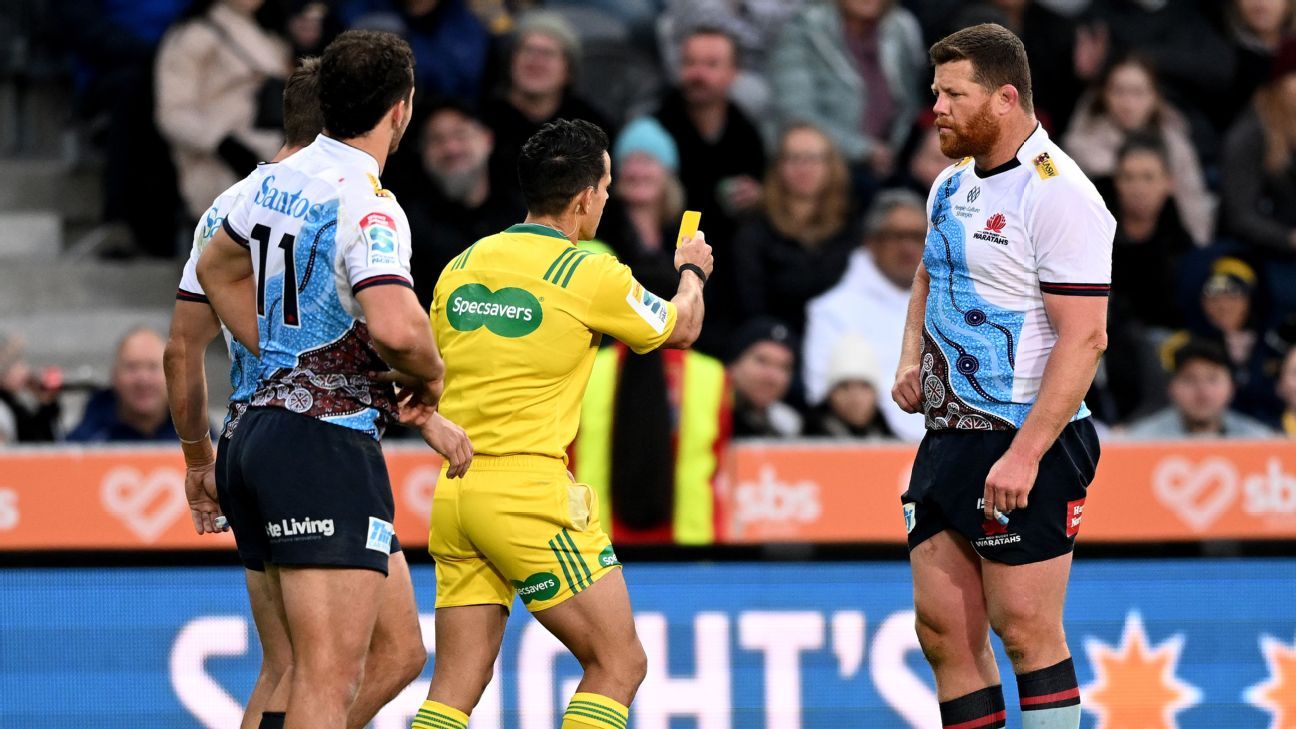Rugby appears caught in a paradoxical universe of wanting to place paramount importance on player safety – and being seemingly incapable of adopting common sense when ruling on accidental collisions.
Everyone involved in the game — from administrators to players, referees, fans — recognises the need to protect and police contact with the head.
At present, though, there is little, if any, differentiation between foul play and accidental rugby collisions that, unless you completely change the fabric of the sport to render it unrecognisable, will always occur in some form.
Rugby is a fast-paced, collision sport after all.
Take the incident involving Waratahs prop Paddy Ryan against the Highlanders in Dunedin last week. Ryan approached a breakdown for a typical cleanout you see 100 times in a match, ducking his head as he moved into contact. At the same time Highlanders lock Josh Dixon ducked his head, too, which brought about a head clash around knee height.
In short, the collision was largely unavoidable at speed and, at best, warranted a penalty, not a yellow card. Across the 99 red and yellow cards handed out in Super Rugby Pacific’s inaugural season, this was far from a one-off frustration.
In ruling on any incident, today’s officials are guided by the following framework issued by World Rugby:
– Is there head contact – yes or no?
– Is there foul play – yes or no (some incidents can be purely accidental or unavoidable and therefore it should be play on)
– What degree of danger/force?
– Is there any mitigation that needs to be considered ie: drop in height, another tackler involved?
Even the most casual rugby observer could spot the dead set shocker that was Highlanders first five-eighth Sam Gilbert’s horrific spear tackle on Waratahs captain Michael Hooper last week – an incident that earned him a five-week suspension, downgraded from 10 weeks.
No one is arguing with that punishment.
Yet several other incidents of a far more accidental nature have contributed to a spate of red cards this season, including those involving Moana Pasifika midfielder Levi Aumua and Crusaders lock Hamish Dalzell.
Richard Kahui’s head clash with Highlanders first five-eighth Mitch Hunt, which was then overturned by the judiciary two weeks ago, is the latest example of an on-field ruling gone wrong.
Waratahs prop Angus Bell was also cleared by the judiciary earlier this season after being red carded for his tip tackle on Chiefs co-captain Sam Cane.
In these instances, the judiciary and referees are not on the same page, creating further confusion that often leaves fans shout into the ether.
In terms of suspensions, we have also seen Caleb Clarke’s accidental charge down incident handed the same three-week punishment as others, such as Crusaders hooker Shilo Klein, who demonstrated clear intent.
Super Rugby 2021 – across the Aotearoa, Australian and trans-Tasman competitions – featured 13 red cards.
With one round remaining before the three-week playoffs, Super Rugby Pacific has surpassed last year’s red card count by three. And not all of them were necessary.
While the onus undoubtedly falls on coaches and players to generally lower tackle heights and improve techniques, officials must be more willing to mitigate incidents involving accidental head clashes where it is clear no foul play or intent is intended.
This is where the 20-minute red card trial has helped preserve contests in Super Rugby by offsetting the significant advantage highly debatable red cards, some of which have been later overturned by the judiciary, hand one team.
England’s Six Nations loss to Ireland at Twickenham earlier this year was marred by Charlie Ewels’ red card for an accidental head clash 90 seconds into the match. Moments later, officials somehow overlooked Irish playmaker Johnny Sexton making direct shoulder-to-the-head contact on Maro Itoje.
The 20-minute red card replacement law mitigates the damage to the contest these controversial rulings inevitably have.
With the women’s World Cup in New Zealand later this year and men’s 2023 World Cup in France looming into full view, the 20-minute red card trial has widespread support from the Southern Hemisphere nations following its implementation in the Rugby Championship, as well as Super Rugby competitions.
Unfortunately, though, Dublin-based World Rugby has once again sided with the north to reject the law trial from its latest global offering, citing player welfare concerns.
The upshot of scrapping the trial is that more power than ever will rest in the hands of officials when it comes to the vexed issue of red cards and accidental rugby related collisions.
Striking the balance between player safety and preserving a fair contest is not easy. At this point in rugby’s evolution, it seems officials are under increasing pressure to always adopt a hardline stance that ignores the need for common sense to be applied.
